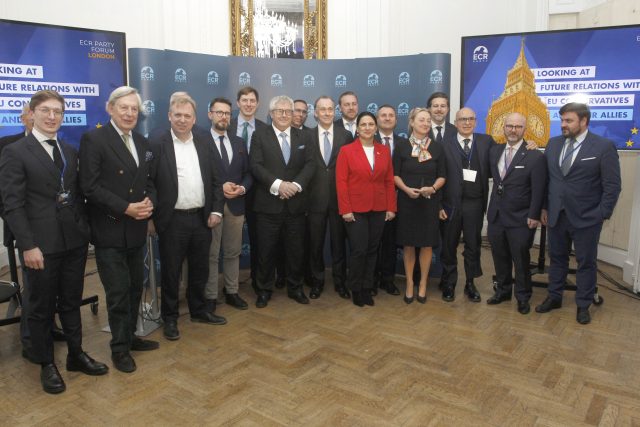
The conference “Looking at Future Relations with EU Conservatives and Their Allies”, held between the 13th and 15th of January in London, was the first meeting in the 2023 series of debates organised by the European Conservatives and Reformists Party (ECR). More than 80 guests from 13 countries attended the event in the UK capital. In a solemn setting, those present at the meeting had the opportunity to debate, in four interactive panels, many of the topical issues and questions facing the European Union in the context of strengthening relations with the United Kingdom, which is no longer a member of the European Union.
The topic debated in the first panel of the conference was an extremely sensitive one: Coordinating efforts towards a more secure Europe, strategic energy supply, and strengthened bonds with allies abroad.
Moderators Michal Szpądrowski (Secretary General EYC, and Warsaw Councilor, Poland) and Maicol Pizzicotti Busilacchi (International Secretary FdI Gioventù Nazionale, Italy) together with guests Carlo Fidanza (ECR Party Director, MEP, Italy), Fatmir Mediu (Chairman Republican Party of Albania, Former Minister of Defence, Albania), Sir Ashley Fox (former leader of the Conservatives in the European Parliament, United Kingdom), Veronika Vrecionová (MEP Czechia) and Andrew Percy, (MP United Kingdom) debated NATO’s relations with member countries that do not fully meet the Alliance’s requirements and how the future of Europe is seen from a Conservative policy perspective.
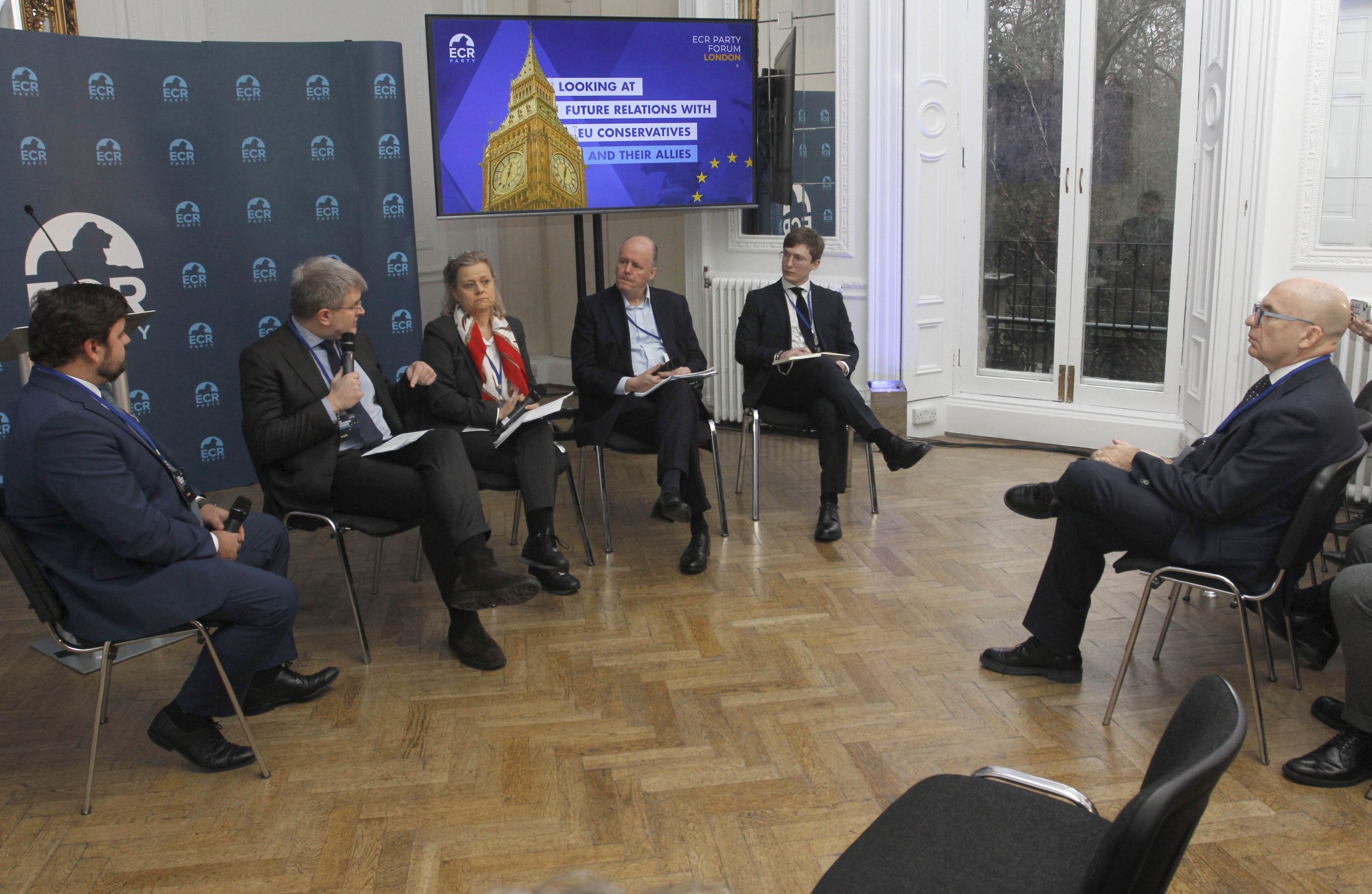
How to manage the reaction with NATO and the states that do not meet the minimum requirements was one of the questions to which the guests argued with pros and cons the importance of military reinforcement of Europe’s Eastern flank in the context of the current crisis in Ukraine. At the same time, the five speakers gave examples of how the North Atlantic Alliance is seen in their countries and the general public’s perception of the importance of the security offered by the NATO umbrella.
“What kind of future do we want for Europe?” was another highly sensitive topic debated by the European conservatives at the London meeting.
A political future, with a strengthened European Parliament and European Commission, an economic future, with a stronger role for the European Union in the economic and financial systems of member countries, or a social future, with empowerment of the people in choosing their representatives, focusing on a clear agenda and shared values?
“I had the honour of opening the European Conservative and Reform Party Forum in London. Together with Veronika Vrecionová and Ashley Fox we talked about the Europe we want to build: more secure borders, energy and raw material autonomy, leadership on the international chessboard. The future of Europe goes to the conservatives!”, said Carlo Fidanza, ECR Party Director, MEP, Italy.
Ashley Fox, former leader of the Conservatives in the European Parliament, outlined the UK’s defence and energy prospects and challenges.
Veronika Vrecionová succeeded in the debate to instil pragmatic views on how to balance the energy crisis and environmental goals at the European Union level. Vrecionová argued that we cannot agree to keep our homes warm and at the same time be world leaders in clean energy.
The theme of Saturday’s second panel discussion, moderated by Karim Abdel-Motaal (CEO of KAM Hedge fund, PhD. Harvard University, United Kingdom), was to explore opportunities for developing culture, tourism, education and research with EU allies and strengthening relations with the United Kingdom.
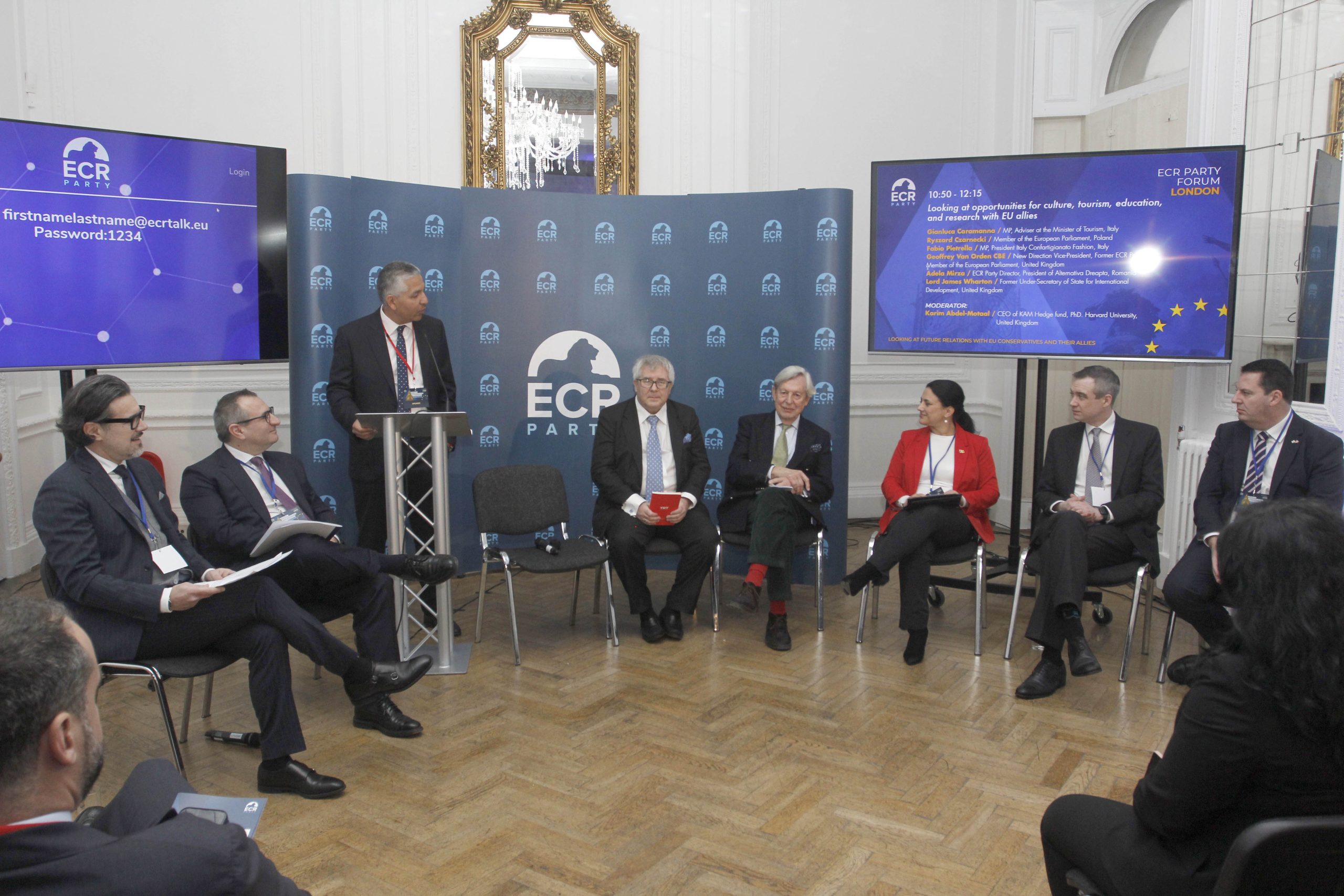
“Although the United Kingdom is no longer a member of the European Union as a result of Brexit in 2020 it is still part of Europe and cooperation between the UK and EU member countries must be maintained,” Lord Wharton argued.
Fabio Pietrella (MP, President Italy Confartigianato Fashion, Italy) reaffirmed his support for the extremely rich diversity and attractiveness of European crafts. Pietrella put forward some very interesting proposals for greater European coordination in this regard.
Ryszard Czarnecki (MEP, Poland), known as one of the pillars of conservative international relations, reaffirmed Poland`s and the Conservatives commitment to Ukraine, to the Ukrainian people and their struggle for freedom and the European way.
Chair of Alternativa Dreaptǎ, Adela Mîrza highlighted the cruel role of public outrage that justice is often confused with history. Adela Mîrza stressed that conservatives do not shy away from historical iniquities, but also remember that history is the fabric of common conservative belonging.
“We are in the land of Shakespeare, who, by the way, was a ‘white supremacist’! Culture is something you should be able to show your children in their 20s without having to blush. Culture is something that converts. It is about Beauty, about Truth and Justice. It’s about authenticity, sincerity, vocation. You can’t pretend to be a doctor, or a priest. Either you are or you’re not. Education and culture must come with a moral compass! Culture and education, sport must not be ideologized! Wearing ‘One Love’ bracelets at football matches, firing a Russian ballerina from the Vienna Opera because of Putin, banning Shakespeare from literature because he is ‘white supremacist’ or hiring a man at the Paris Opera because of gender and not talent has nothing to do with culture. Neither does the exclusion of Hungarian universities from the Erasmus programme because of Victor Orban’s policies. This is a bit much. We should be very careful what kind of culture we promote. We must promote cultural heritage. Culture that has stood the test of time”, stressed Adela Mîrza, president of Alternativa Dreaptǎ.
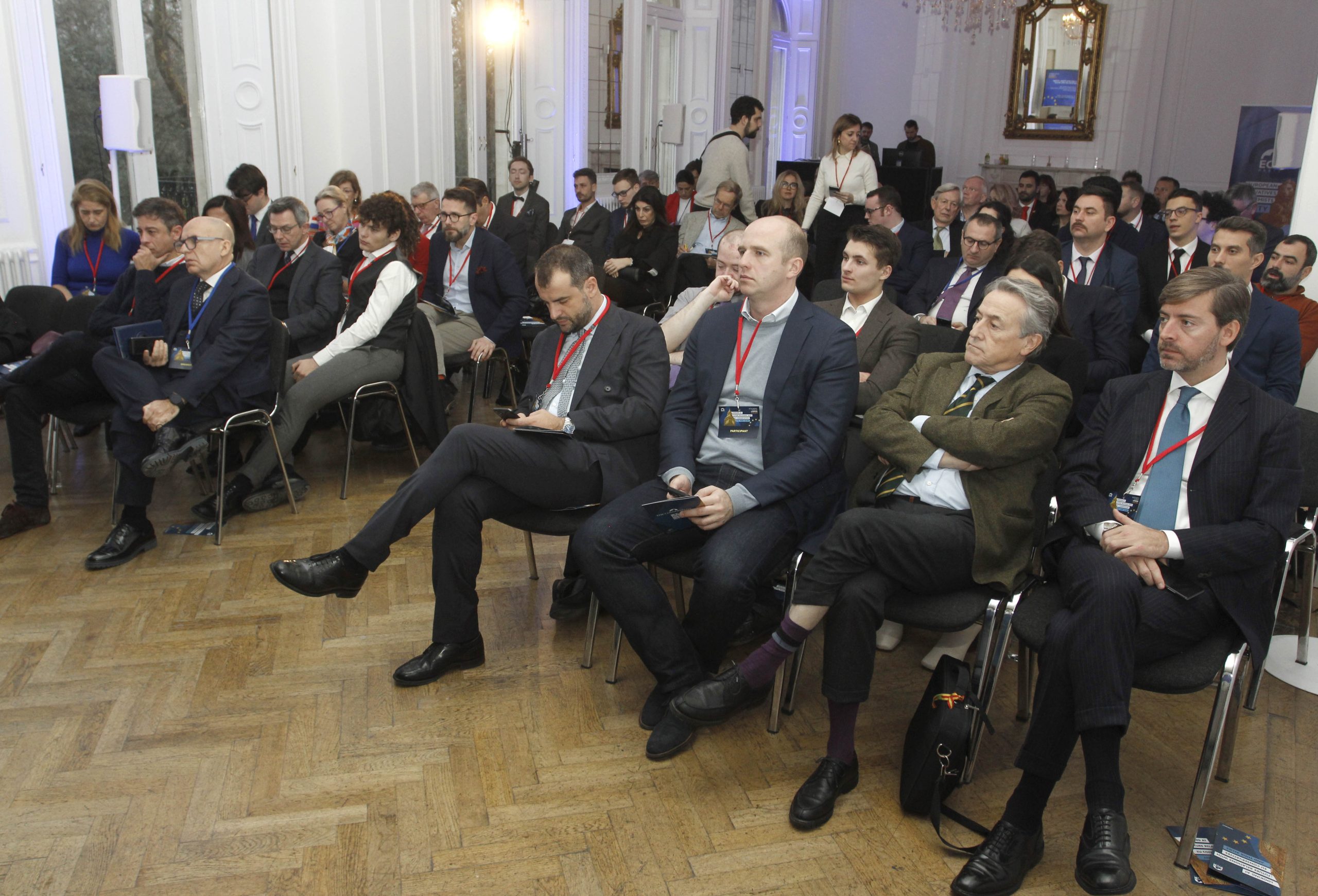
The third panel, moderated by Michela Morizzo (CEO Techne, United Kingdom) discussed the conservative approach to financial markets, central banks, public spending and economic stability in the European Union.
Mazaly Aguilar (MEP, Spain) generously shared her political-economic expertise on public spending and European monetary policy.
Henry Ergas (Former OECD Counsellor, Professor, Columnist, Economist, Australia) presented to the ECR Party conference audience some key points on how a reformed monetary policy and real support for innovation and entrepreneurs can lead to greater prosperity for us all.
In the fourth panel of the day moderated by David Maddox ( journalist at the Express, UK) the theme of the debate was the global conservative vision for small government, prosperity and freedom.
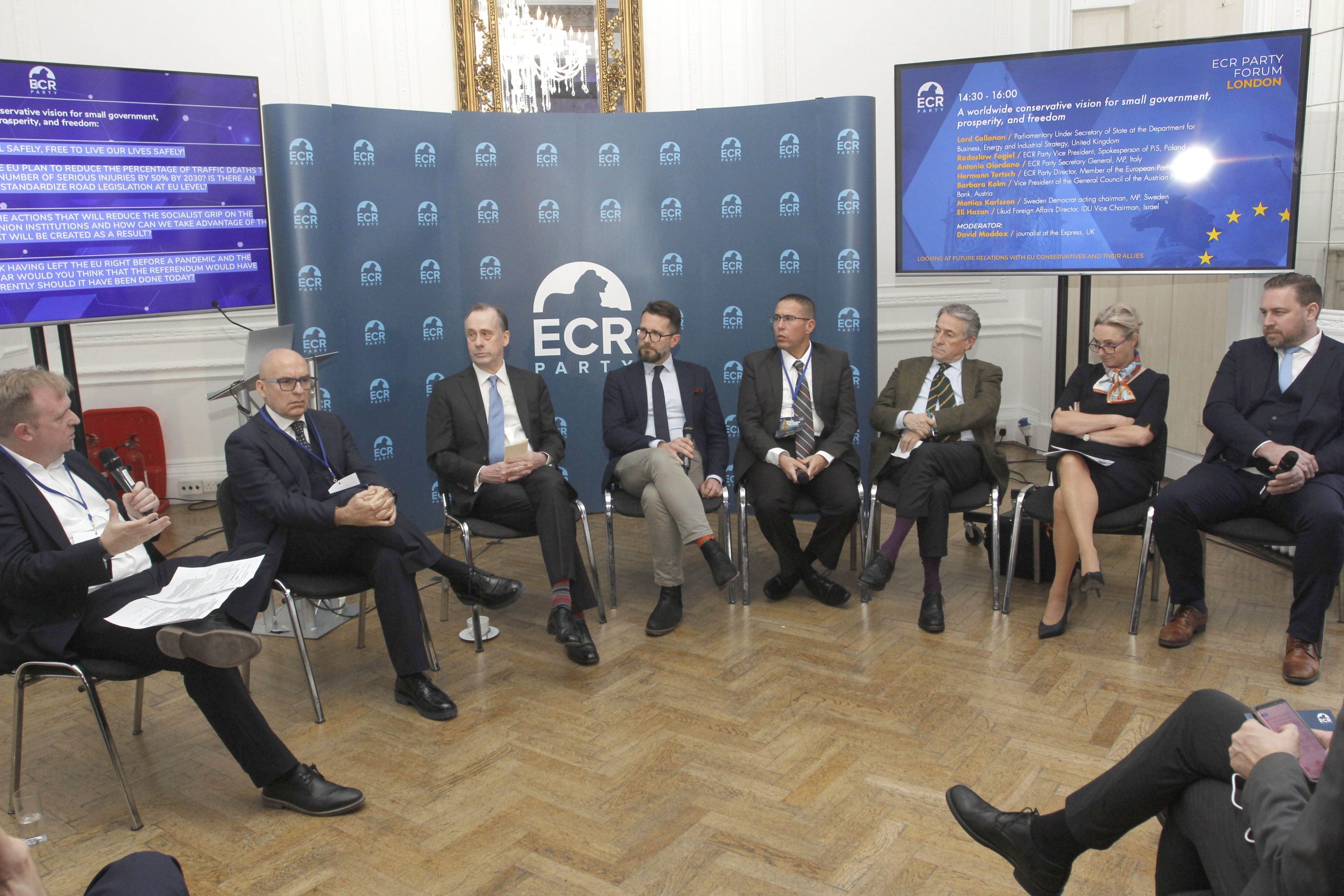
Antonio Giordano (ECR Party Secretary General, MP, Italy) gave a speech defending a reformist approach based on an awareness of the past and not the “culture of cancellation” advocated by some progressives.
“The Beatles changed music owing to the harmonies of all musicians in history, and certainly in the future nobody should try “canceling Beatles”” argued Antonio Giordano.
Members of the delegations in London also had the opportunity to visit Westminster Parliament, the supreme legislative institution of the United Kingdom of Great Britain and Northern Ireland, the British Crown Dependencies and the British Overseas Territories. Lord Whatson, who was the ‘guide’ on the visit to the Westminster Parliament, explained how and under what rules the British legislature meets.
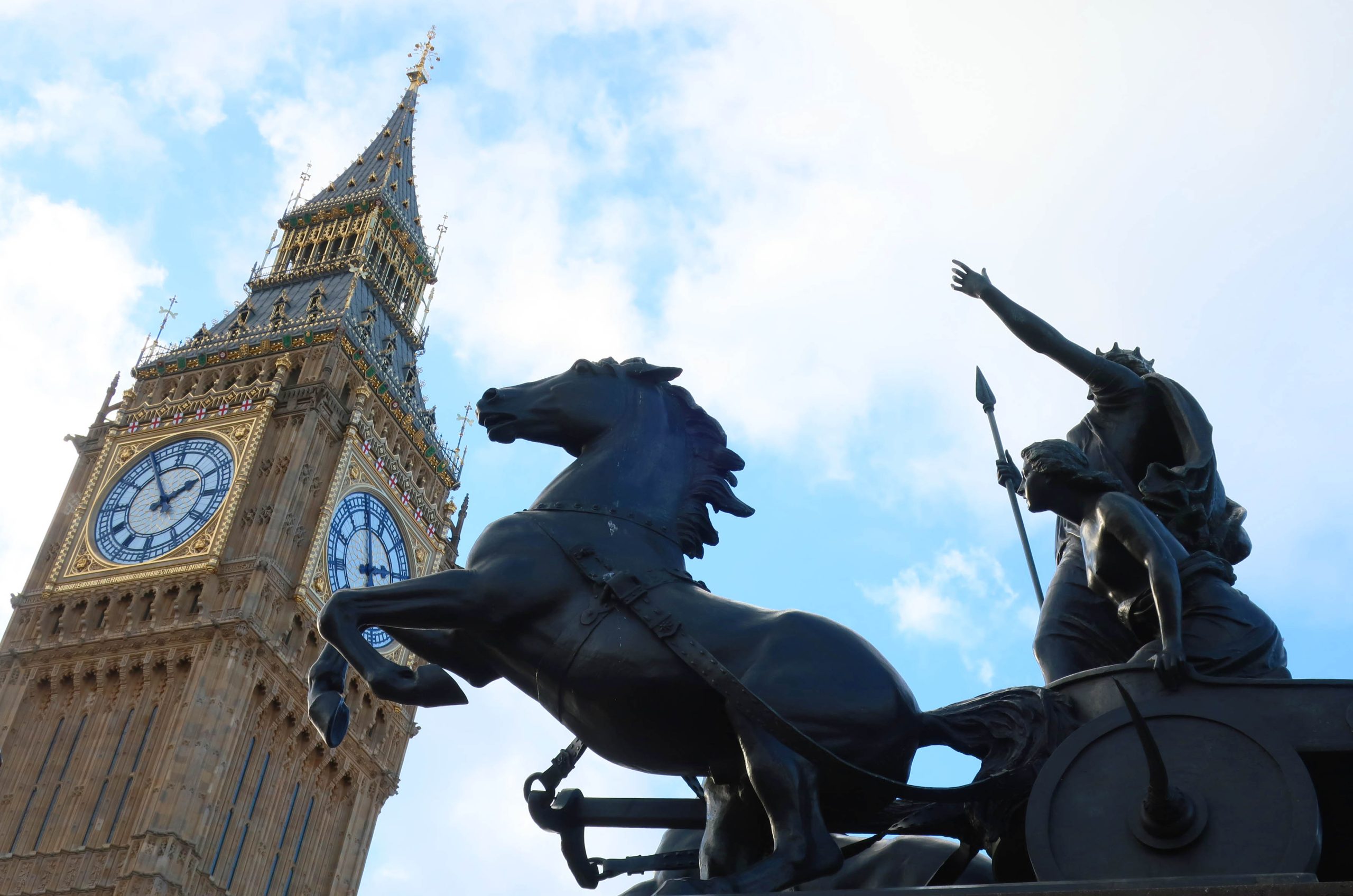
Finally, we can say that the ECR conference in London was a real success, bringing together young, promising people for the future of European Conservatism with more experienced members, both in life and politics. They shared their own experience and together at least managed to bring up possible strategies to improve the life and welfare of citizens from the perspective of a conservative government. The benefits of these connections extend not only within the European Union, but also beyond, creating the basis for closer future collaboration between the countries participating in the London conference.
Foto by Eugen Olariu



 Subscribe
Subscribe